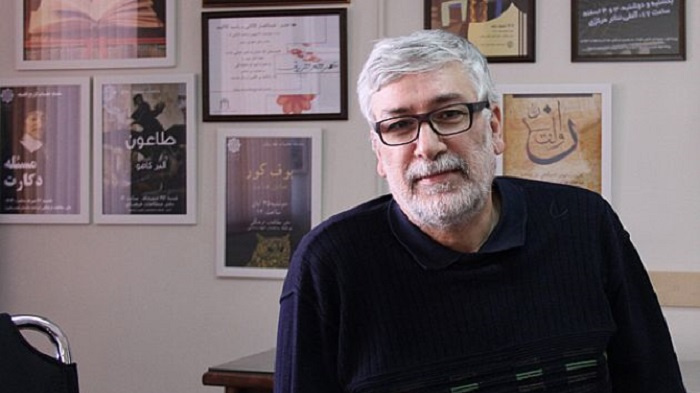Trump Will Not Undermine the JCPOA, Says Veteran Iranian Diplomat

Iranian Diplomacy: Less than three months to US presidential elections, Iranian media are closely monitoring the competition between Hillary Clinton and Donald Trump. Despite lack of official diplomatic ties for more than three decades, Tehran and Washington are more communicative than ever thanks to negotiations that led to a historical nuclear agreement in June 2015. Many in Iran are waiting for the next resident of the White House to see how her (or his) policies will help improve or deteriorate the fragile relations between Tehran and Washington. The possible presidency of the lesser known Donald Trump has specifically triggered debates about the future of the nuclear deal and the state of affairs in the Middle East. Azadeh Tehrani from Iranian Diplomacy has interviewed Abbas Maleki on Trump and the future of Iran-US relations. A veteran diplomat, Abbas Maleki has served as deputy foreign minister (1988-1997), senior associate of the Belfer Center's International Security Program, professor of political science at Sharif University of Technology in Tehran and chairman of the International Institute for Caspian Studies.
IRD: Donald Trump was formally announced as the Republican Party's presidential candidate on July 19th. What trends inside the American society does the rise of Trump signify? Should we brace ourselves for any surprises?
AM: Like many other countries, United States has witnessed a widening gap between the upper class and the middle class throughout the recent decades. New technologies brought to power and energy sector, and the military industry, and also the information technology business have all brought unbelievable wealth to many in the higher percentile.
The middle class has not enjoyed a similar boost in its level of income and welfare however. Since 2008 and the global financial crisis, economy has failed to repeat the three-percent-per-year growth pattern of Bill Clinton era. Radical movements in the United States have now turned class gaps into political gaps. The far-right Tea Party Movement and the far-left Occupy Wall Street Movement demonstrate how extremism has become a trend in the American society.
Trump represents political currents in the United States that want to maintain Washington's global hegemony through its superior military and economic power. There will be changes in Washington's foreign policy if Donald Trump becomes president, however, I believe the vision which has guided Washington's diplomatic action since the World War II will not undergo a substantial shift. Both parties in the United States are committed to Israel's security and maintenance of close ties with their NATO allies. If Trump is president, Washington may come to some sort of agreement with Beijing in the South China Sea. Relations between Moscow and Washington will be tailored to the post-Putin era. In the Middle East, traditional allies such as Israel and the Saudi kingdom will remain White House's priorities.
IRD: Some Iranian analysts have suggested that a combination of Trump's background as a businessman and his diplomatic inexperience could make him more flexible in dealing with the nuclear Joint Comprehensive Plan of Action (JCPOA). Do you agree with this argument?
AM: JCPOA was the product of a diplomatic interaction between Iran and six global powers who represented the international community. While it may be true that Washington was a more powerful player among the group, but they were not our exclusive nuclear negotiating partner. Inside Iran, the government tends to place the blame for partial non-realization of the deal exclusively on Washington, but let's not forget that the European Court of Justice is still issuing verdicts against Iran. So I think even if Trumps enters the White House, nothing substantial will happen to the JCPOA. Commitments made by a country could not be revoked with change of governments. I believe Trump and his allies have a realistic understanding of the Middle East geopolitics, energy transfer and military industry. A sound perception of these three key domains means that their analysis of Iran will be also more realistic.
IRD: Trump has made some tough remarks about Riyadh. Could that imply a milder approach towards Tehran?
AM: Trump will collaborate with both Iran and Saudi Arabia. The political situation in the Middle East is different from the time of the Bushs and Bill Clinton and it is impossible to ignore Iran now. Neither blind military attacks from above the Middle East sky, neither boots on the ground will bring victory for the United States. Regional powers have a more prominent role now. Whoever the next US president is, they will try to establish closer ties with both Iran and Saudi Arabia.
IRD: Trump was announced as GOP's nominee in the presidential election though he failed to secure endorsement of some key figures inside the Republican Party. What developments led to his rise as GOP candidate, and what developments could happen with his likely presidency?
AM: I don't think Trump's situation inside the Republic Party is as bad as some Iranian media try to portray. Trump has kept a calculated distance from conventional policies of the Republican Party, but in the meantime maintains his relations with the party's key figures and its principles. He has endorsed Paul Ryan and John McCain for Congress elections. I think there is still time left for his endorsement by those Republican figures who have refused to do so up until now.
IRD: What is the message of Trump's votes? What are the demands of his supporters?
AM: Trump's vitriolic attacks against his rivals may sound strange for those less familiar with the American society and American politics. But I don't think American people, especially those who belong to the lower classes, are upset with his style. This is the narrative his campaign has been promoting: if he has been successful in personal life, then what is the reason he could not repeat that success at the social level? After all, Trump has towers in his name.
* This interview was originally published in Iranian Diplomacy Persian website.

